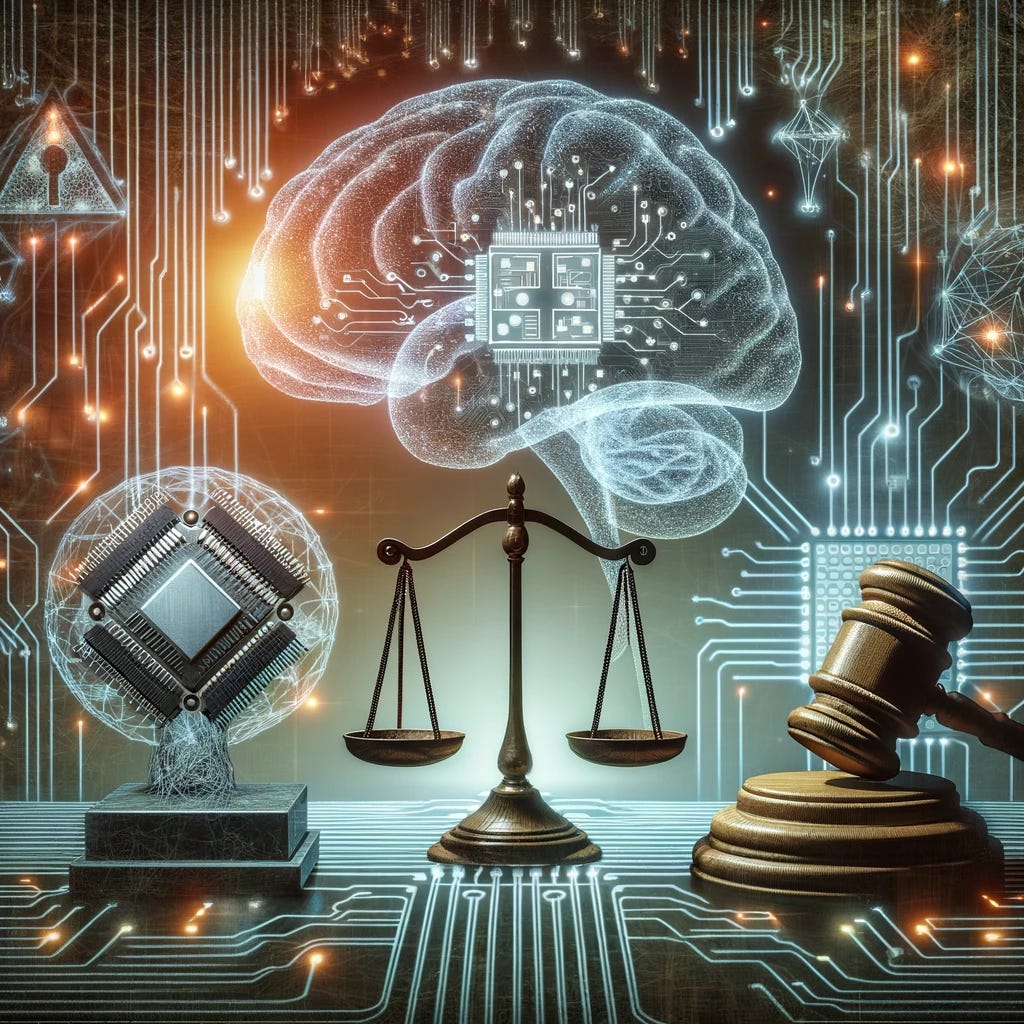Get me Chipped-up Elon
So a couple of days ago Elon Musk announced that his company Neuralink has managed to test its implant on the first human subject. And that is great news and regardless of our personal opinion of Musk (he kind of sucks but honestly SpaceX and Neuralink have a soft spot in my heart) This sounds great. I can't wait to see more companies developing innovative devices and bringing back functionality to people who suffer from different mental ailments conditions or have had accidents rendering them incapable of a normal healthy life.
If you want to know more about other companies developing these solutions I recommend you to check this article (Conrad Gray's article about implant companies). Now, I think these companies developing brain implants are fascinating and a beautiful thing. On one hand, we are closing the gap that separates humanity and hour technology on such a fundamental level that the symbiosis between us and technology seems to be a future that is within our grasp, a future where we can heal damaged brains, where people who are trapped in their bodies can experience freedom once again.
But, we have to acknowledge the complexity and difficulty that messing with a human brain can be it is our most precious and delicate organ, and while extremely resilient and flexible sometimes (yeah this is about that dude that got an iron rod through his brain) it can also be extremely sensitive and any small injury can forever change who you are irreversibly. So yeah I think it is a fascinating and wonderful technology that is being developed but oh hell naw am I not gonna be the ones first in line to get one of those. I believe of course at the moment and with the current development of these technologies they could be life-changing implants and developments for people with disabilities or brain injuries, but there is still a long way to go before we see people queueing in front of their doctor and request a neural implant unto their healthy and functional brain.
Major Players and the Evolving Landscape of Neural Implants
But even though it might be a leap or a couple of years for ME to line up and get me some neural implants the field is rapidly evolving and luckily more and more companies are developing interesting technologies, each vying to bridge the gap between the human brain and technology. Here's a glimpse into the key players and the diverse applications this technology holds:
Neuralink: Led by the ever-present – and ever-insufferable– Elon Musk, Neuralink aims for seamless brain-computer integration. Their highly invasive "threads" aim to control external devices and potentially enhance cognitive abilities. They might be stealing all the headlines but they are not the only ones in the market.
Synchron: Focused on minimally invasive implants, Synchron's Stentrode device sits within a blood vessel near the brain, recording and stimulating neural activity. Their initial trials focus on restoring communication and mobility for paralyzed individuals. This company already has had experience with human patients for over 3 years ago
Kernel: This company (founded by anti-aging daddy Bryan Johnson) explores various applications, including memory augmentation and brain-computer interfaces for communication and entertainment. Their focus lies on non-invasive and ethically driven development. Also, their systems seem like the goofiest helmets ever but might as well be the safest on this list. Also, they did a test to analyze the effects of ketamine on the brain and it is wacky! I love it
I got a brain implant what can I do now?
Well, the reach of neural implants extends far beyond the realm of science fiction (as most of us associate this technology still with these imaginary scenarios and not with the reality of people who could have life-changing procedures and benefit incredibly today with these technologies.. Some key applications include:
Restoring Lost Function: Implants offer hope for individuals with paralysis, blindness, or other sensory impairments. Deep brain stimulation already helps manage Parkinson's, while retinal implants restore vision.
Augmenting Cognitive Abilities: This one is still a bit far-reaching but Imagine learning skills instantly or accessing information directly from the internet. While ethical concerns abound, some companies explore enhancing memory, focus, and communication(and I am so down for this let’s go!).
Treating Neurological Disorders: Implants are being investigated for treating depression, epilepsy, and even Alzheimer's disease by modulating brain activity in targeted regions to fight against the effects of these debilitating conditions.
Of course, in a field of technological development as nascent as this, it is inevitable to face a whole bunch of challenges and we will be seeing a lot of them in the coming future. But promising results are emerging. Early trials, like Synchron's Stentrode for paralysis, show potential. However, significant hurdles remain such as:
Technological Challenges: Miniaturization, biocompatibility, and long-term safety are ongoing concerns. Ensuring seamless integration with the brain and minimizing tissue damage requires further refinement.
Regulatory Landscape: This I believe is the biggest challenge (believe me I’ve had to deal with the FDA and it is NOT an easy task) Rigorous clinical trials and ethical considerations are crucial. Regulatory bodies are still developing frameworks for implant approval, creating a dynamic landscape where hopefully it will be rigorous but a clear pipeline for future developments is cleared out.
Ethical Concerns: Issues like privacy, data security, and potential manipulation of brain functions raise serious ethical questions. which we will talk a bit further down if you’re a bit patient with me.
While the path forward is riddled with challenges, the potential of neural implants to improve lives and push the boundaries of human-technology interaction is undeniable. By remaining mindful of the ethical considerations and navigating the regulatory landscape cautiously, this field can usher in a new era of personalized medicine and human augmentation. Where we can heal and regain lost capabilities for millions worldwide and humanity could access a whole new level of intellectual and creative capabilities the likes of which we have never seen before.
What Happens When Your Brain Implant Company Goes Bankrupt?
In the labyrinthine corridors of healthcare and technology, the specter of bankruptcy for medical devices casts a dark shadow of potential peril over the patients and the people developing these devices. The main concern is regarding logistical and financial intricacies. How to safeguard patient safety and uninterrupted access to essential treatments for those who have these devices after a company goes bankrupt? What to do when you have a brain implant making you smarter, wiser, and able to overcome a brain injury you sustained after an accident when Elon Musk tweeted too many horrible things affecting the bottom line of Neuralink? Will you have to remove it and hand it back rendering you back to a handicapped condition?
This is why regulatory entities like the FDA in the United States and their counterparts across the European Union, such as Eucomed wield their power with a delicate balance of oversight and intervention to keep those whose livelihoods depend on medical devices to keep the lights on in this crucial supply chain.
This was a happy surprise when I started to research this topic because firstly I had the idea that if anything happened people with these medical devices were somewhat screwed and had no way of recovering or sustaining themselves or the supplies needed for their devices. Luckily in developed nations, there are alternatives for those patients where the primary concerns are as follows:
Facilitating supply chain continuity: They may work with remaining manufacturers or distributors to ensure continued device availability.
Issuing guidance for healthcare providers: This guidance informs providers on managing existing implants, alternative options, and potential risks.
Offering humanitarian exemptions: They can grant exemptions for continued use of unsupported devices if no alternatives exist.
Device Maintenance and Support: Bankruptcies can disrupt maintenance and support services for implanted devices. This can be critical for devices requiring firmware updates, bug fixes, or data security patches.
Require existing service providers to continue support: This ensures patients receive necessary service for a defined period.
Facilitate knowledge transfer: They may encourage knowledge transfer to other qualified providers to ensure future support.
Financial Reimbursement: Patients might face challenges with warranty claims or coverage for replacement devices if the original company is no longer operational. Regulatory bodies and healthcare institutions may collaborate to:
Establish patient assistance programs: This can help alleviate financial burdens for affected patients.
Offer alternative reimbursement pathways: They may explore alternative coverage options for necessary treatment with alternative devices.
For more info, this podcast has a lot of insights
Concerns are Natural
Now, of course, there are a lot of concerns with this technology. And again as mentioned it is something that is going to be IN YOUR brain so the fear and trepidation of the public is understandable (even though a lot of it is fueled by sci-fi hysteria honestly) On one hand we have all the issues of data privacy and security if we already are not 100% sure of these two issues which are paramount, with regards to our data online and in our phones and other devices how will we trust private companies with the data from our brain – and the one that goes into our brains for that matter as well– So the regulation and the oversight around this will need to be airtight so people can willingly trust into these companies to meddle into their brains eventually.
Also another issue with brain implants is the question of accessibility and equity, because when this technology can enhance people and provide them for example with an AI assistant communicating directly with their brains 24/7 the increase in productivity and intellectual capacity of these augmented humans will put them above and beyond the baseline human capabilities and most likely when these technologies are available and good enough they of course will be more democratically available( just look how mobile phones went from bricks fro wallstreet to the democratization of smartphones) but still the middle stages might be tricky to work around and try to have most humans benefitting from this and not going off into an arms race to see who gets he implant first and can achieve this “enhancement” and reap the rewards before others.
Finally, we have issues of consent and autonomy how can we ensure informed consent for implanting devices that alter the brain function for example with patients who are unable to properly communicate consent? What if a family decides to implant a relative who's in a coma or has had some other condition that affects their capability to communicate and they don’t want to but the removal of said device now is a life-threatening surgery? It is a complex field that opens up in front of us.
Hopefully, more and more conversations around this topic bring forth other issues and solutions, we got the BRAIN initiative by the US which hopefully not only accelerates this technological development but also helps a safe and robust regulatory pathway so this technology can be as safe as possible for end consumers and future patients which might be you or me.
Where is my Brain Chip Bruh?
I think the future of neural implants looks bright – I mean I am an optimist at heart– but that doesn’t mean that the technology doesn’t offer some dark pathways for us to fall if we are not careful enough. Overall I’d say medical devices and the ecosystem around it is something a lot more regulated and safe than what we have seen in the Tech scene with companies launching products without enough experience or approval and then eroding the foundations of democratic institutions all over the world (here’s looking at you social media) but then again the repercussions of a symbiosis between humanity and technology are philosophically earth shattering and honestly species-redefinyng if you ask me.
The moment we take a step in this direction we are effectively starting to create a new species on this planet the first technological-human symbiote will emerge from this and this poses a lot of questions about how we continue to define and integrate more and more technology into ourselves once the “line” of our brains has been crossed. Also hopefully we don’t end up like this:






